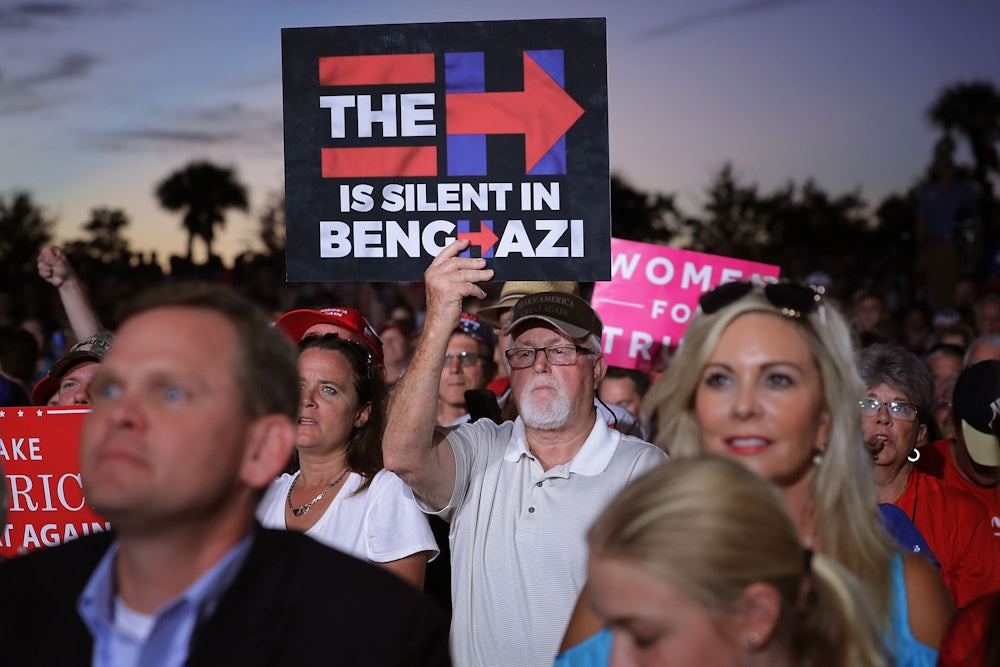There has been talk that Donald Trump may be helped by something loosely referred to as the “reverse Bradley Effect.” The original Bradley Effect was named after Tom Bradley, the black former mayor of Los Angeles, who lost the 1982 California governor’s race despite leading in polls. Political scientists later found that poll respondents said that they were supporting him in order to not appear racist.
In the case of Trump, some speculated that the reverse could happen—that Trump voters would be too ashamed to openly support him because he’s a racist and a sexist and a demagogue and would therefore lie to pollsters, underreporting his true level of support.
There was some evidence that Trump benefited from the “reverse Bradley Effect” in the primaries. Trump himself has often proudly pointed to the Bradley Effect. “He was supposed to win by 10 points, and he lost by 5 or something. So it’s a certain effect,” Trump said in June. “Now, I have—unfortunately, maybe fortunately—the opposite effect. When I poll, I do fine. But when I run, I do much better.”
But a recent study showed that, while “pockets” of “shy Trump voters” still exist, they are not significant enough to swing the election—even if it’s a close one. A Politico/Morning Consult study of likely voters found that “a hidden army of Trump voters that’s undetected by the polls is unlikely to materialize on Election Day,” and that most of Trump’s voters seem to have no scruples with openly supporting their candidate.
To some extent, this is troubling, since it points to the normalization of Trump’s toxic rhetoric, behavior, and politics. But one of the most persistent narratives over the last two election cycles is that there is an army of secret voters—Mitt Romney’s camp was convinced that “missing white voters” would vote for him on Election Day—that would come to the GOP’s salvation, like Gandalf at Helm’s Deep. As we get closer to November 8, that doesn’t seem to be the case.
